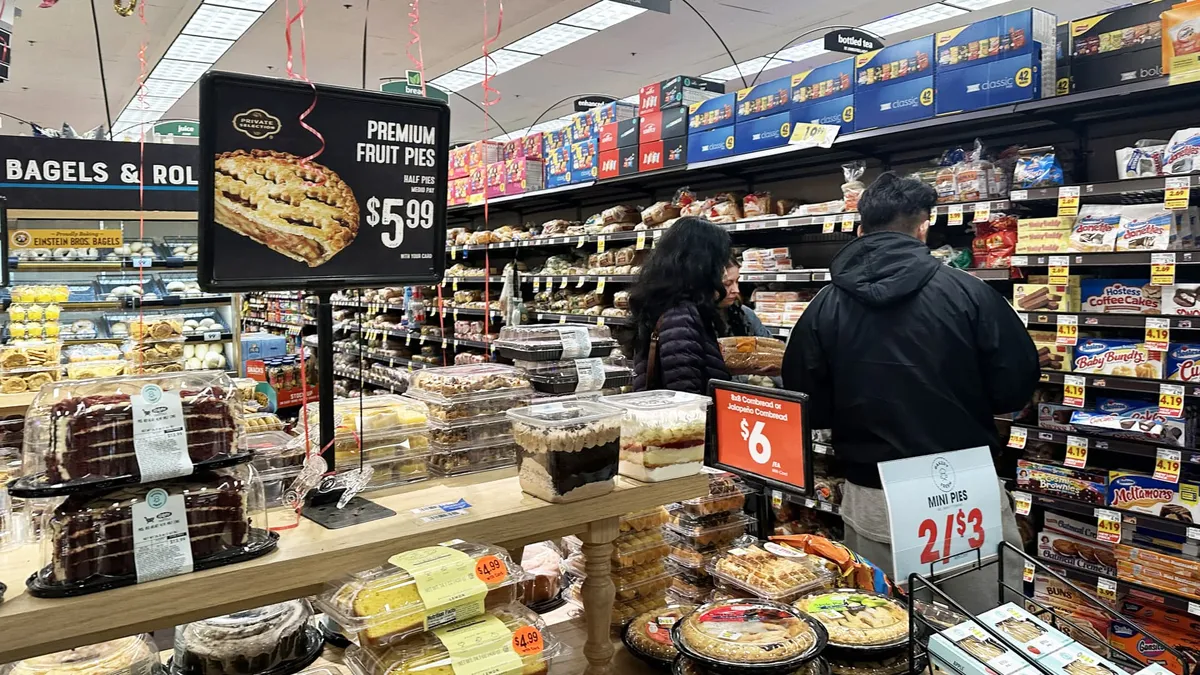
The retail landscape is experiencing a significant shift, as not only Walmart but also other leading companies catering to everyone from budget-conscious grocery shoppers to luxury travelers are reporting signs of weakening demand. After a prolonged period of resilient consumer spending that propped up the U.S. economy, the current economic climate presents new challenges, including high interest rates and persistent inflation.
CEOs are grappling with a multitude of obstacles, including fluctuating tariffs, mass government layoffs, and deteriorating consumer sentiment. Recent earnings calls and investor presentations indicate that many retailers and consumer-facing businesses are bracing for softer-than-expected sales in the first quarter, with a grim outlook for the remainder of the year. While some executives attribute this downturn to unseasonably cool weather and a volatile macroeconomic environment, the political landscape has added complexity to their planning efforts.
Economists forecast that the new tariffs imposed by the Trump administration on goods from China, Canada, and Mexico could lead to increased prices for consumers, further dampening spending at a time when inflation remains above the Federal Reserve’s targets. In February, consumer confidence experienced its largest drop since 2021, and subsequent sentiment measures for March also fell short of expectations. Additionally, the once-strong U.S. job market is beginning to show signs of strain, with job growth slowing and unemployment rates inching upward.
These economic trends have led to a decline in the stock market, with the S&P 500 falling 10% from its record highs in February. As concerns about the impact of tariffs on consumer spending mount, even the most robust companies are adopting a more cautious tone. Walmart, the retail sector's leader, has experienced a shift in its growth strategy, focusing on higher-income consumers while acknowledging the need for a more measured outlook for the year ahead. During its recent fiscal fourth-quarter earnings announcement, Walmart's stock fell after the company warned of slower-than-expected profit growth.
In the airline sector, Delta Air Lines CEO Ed Bastian echoed similar concerns regarding consumer confidence and a decrease in both leisure and business travel bookings. Following a downward revision of its earnings and revenue forecast for the first quarter, Bastian noted that uncertainty in the market is influencing consumer behavior. This sentiment is further compounded by safety concerns following major airline accidents, including Delta's own incident in Toronto.
Other retailers such as Dick's Sporting Goods, E.l.f. Beauty, and Abercrombie & Fitch have also issued weak forecasts recently, showing signs of cautious optimism for the second half of the year. Ed Stack, chairman of Dick's Sporting Goods, highlighted the uncertainty surrounding tariffs and their potential impact on consumer behavior. Despite outperforming the S&P 500 over the past year, the shift in commentary from these companies serves as a critical warning that consumer spending may be beginning to falter.
The deteriorating outlook for consumers has been echoed by executives from companies like Dollar General. CEO Todd Vasos reported that many customers are struggling financially due to ongoing inflation, with some only affording basic essentials. This trend illustrates an increasing demand for value and convenience among consumers.
As companies navigate these uncertain times, American Eagle has also pointed to cold weather, along with reduced demand, as contributing factors to a slower-than-expected start to the first quarter. CEO Jay Schottenstein noted that the fear of the unknown—stemming from tariffs, inflation, and government cutbacks—has contributed to a more conservative consumer spending approach.
As the retail and airline industries brace for a challenging economic landscape, it is clear that a combination of external pressures, including tariffs and inflation, are beginning to impact consumer behavior. With companies like Walmart and Delta navigating this new reality, stakeholders must remain vigilant and adaptable to the evolving market conditions.